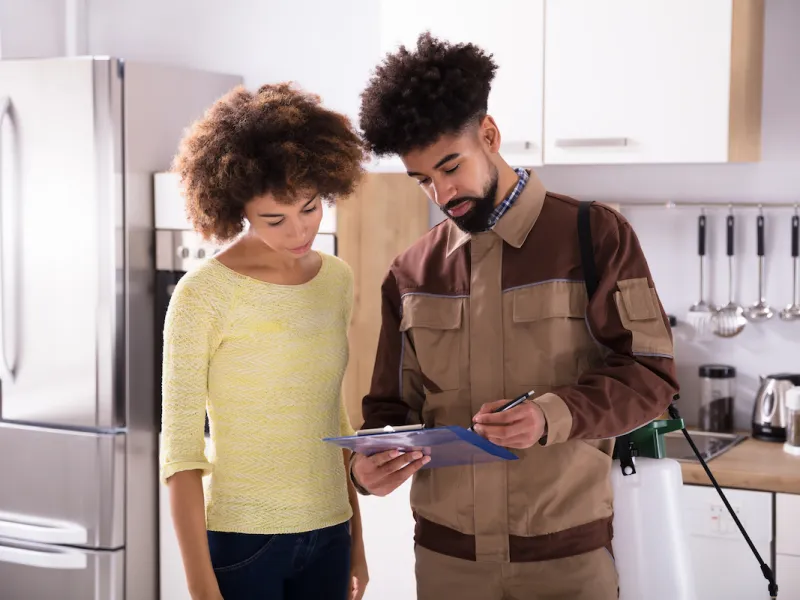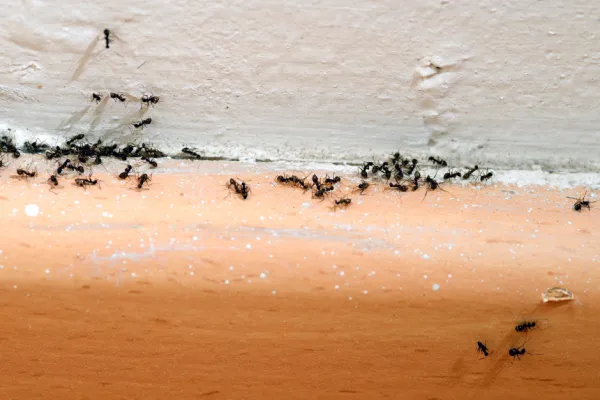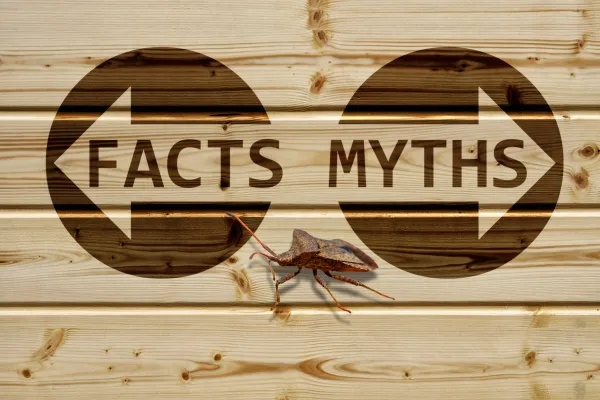The Do’s and Don’ts of At Home Pest Control

At one point or another, most of us have encountered some type of pest problem, whether small or large. Unfortunately, it likely wasn’t that last time you will either. Dealing with pests can be stressful and time-consuming. If the problem isn’t addressed quickly and correctly, it can lead to expensive consequences. If you are unsure of where to begin with your at-home strategy for added pest control and prevention, here are some do’s and don’ts from the pest control experts at Palmetto Exterminators.
DIY Pest Control: Here’s What To Do
Best Pest Control Tips & Tricks
Prevent, Prevent, Prevent
Taking simple precautionary measures can help diminish the potential of pest infestations in and around your home. These simple yet effective prevention tips will help you keep the pests away:
- Tidy-up cluttered spaces and remove excess furniture.
- Close cracks and holes that could serve as entryways to your home using sealant, steel wool, or wire mesh.
- Store food in sealed containers to prevent attracting unwanted critters
- Remove trash from inside and outside the home regularly, only storing in tightly covered garbage cans. Avoid keeping things like cardboard boxes and newspaper stacks around your home.
- Fix leaky plumbing and don’t let water collect anywhere in or around your home.
- Avoid leaving pet food and water out overnight.
To learn more about the recommended best practices for pest management at home, click here.
Know Your Products
With a market full of different pest control products, it can be difficult to know which one is right for your needs. If you choose to use any pest control products at home, be sure to read all labels and safety warnings! Many pesticides and insecticides contain toxins that are extremely dangerous for both animals and humans, especially young children. Thoroughly examine the product labels for instructions on proper usage. Only use the amount of product you need; more is not always better.
Other pest control products such as insect zappers commonly found at your local store are often harmful to the ecosystem living in your backyard. Not to mention, they often aren’t as effective in getting rid of the critters as they are supposed to be. Keep in mind that the best way to get rid of an infestation quickly is to seek help from a professional! If you are looking for at-home pest control solutions, make sure to follow these safety guidelines:
- Keep pets and children away from areas where pesticides or other chemicals have been used.
- Pesticides should only be used on targeted areas, not sprayed over the whole room.
- Stick to ready-to-use products whenever possible. This way you can avoid having to touch chemicals that could be dangerous.
- Only apply chemicals that have been approved for home use inside. Check the label to see where the product may be used. Do some research using the name and EPA registration number of any ingredients or look up the material safety data sheet.
- Make sure to safely and properly dispose of any leftover pesticides and pesticide containers.
Get To the Root Of the Problem
While this step might seem intuitive, it’s important to keep in mind! Many of us spring into action when we see a pest before we look into the source of the problem. Even worse, once we take care of the surface level issue, the real problem gets forgotten. Good pest control is not out of sight, out of mind. Once you take care of the immediate issue, spend some time researching the type of pest that you encountered in your home so you know what you are up against.
If in doubt, you should contact your local pest control experts to provide you with a pest inspection, especially if you suspect damaging critters such as termites. The highly trained service technicians at Palmetto Exterminators will work with you to create a specialized plan that suits your needs and your budget.
Avoid These Common Pest Pitfalls
Using Outdoor Chemicals Inside Your Home
Chemicals meant for outdoor pest management can be extremely dangerous if used inside your home. Such products are specifically designed with different properties and ingredients that will remain toxic longer inside than they would outdoors. Bringing potentially toxic products into your home isn’t worth the health risk!
Transferring Pesticide From the Original Container
Pesticides should be kept in the original container and never transferred. Doing so opens the door for accidental spills and safety hazards. You should also refrain from reusing these chemical containers for other purposes or storing excess pesticide in a food or beverage container, as this could result in chemical consumption by children or other unwanted contamination. Even if you wash the container thoroughly, remnants of the pesticide will likely remain. If the pesticide must be mixed with water or another substance, only mix as much as you need.
Trying to Handle Heavy Pest Infestations On Your Own
Pests like termites and bed bugs can be particularly difficult to manage on your own. These insects can lead to extremely costly damages to your home, on top of other consequences. Similarly, bats, mosquitoes, and rodents can carry diseases that can transfer to humans. Instead of putting yourself and your family in harm’s way, call the professionals at Palmetto Exterminators.
Palmetto Exterminators uses integrated pest management methods to thoroughly assess the pest situation and deliver the best results to our customers. In the midst of ongoing COVID-19 concerns, you can rest assured that we are taking additional safety measures during our home service visits. All team members will wear gloves and masks when entering your home, in addition to following the CDC’s best practices for hand washing and social distancing. Learn how you can get a free pest inspection today at one of our many service areas.


